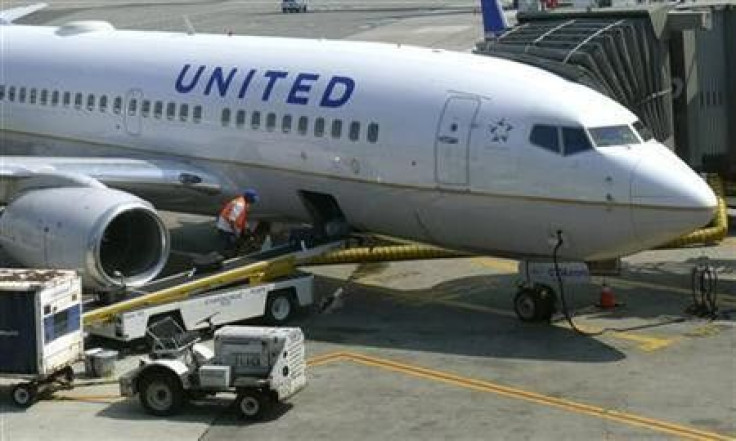Americans’ Satisfaction With Airline Industry Just Above That Of Cable TV Providers

Travelers may have rated their satisfaction with airlines three percentage points higher than last year on a new survey from the American Customer Satisfaction Index, but the airline industry would only be able to brag about its dismal score to two other industries: the reviled cable television and Internet service providers.
Airlines received an average score of just 69 points on the Index’s 100-point scale, though JetBlue (83 points) and Southwest (81 points) helped lift up the pack. Indeed, Southwest was the biggest improver in 2013, gaining five points after a patch of rough air during the early stages of a merger with AirTran.
"As operations are combined and consolidated, airline mergers are not without significant problems and passenger dissatisfaction is usually one of them," said Claes Fornell, ACSI’s founder and chairman and a professor at the University of Michigan’s Ross School of Business, which spun the survey off into a separate company. "Sometimes these are short-term problems that eventually get solved, which seems to be the case here.”
United, however, has had a rough go of it with customers after its rocky merger with Continental, which put it in last place for customer satisfaction this year with just 62 points. It’s joined at the bottom of the list by two other carriers that are about to merge, American (65 points) and US Airways (64 points). Delta, meanwhile, fared the best of the legacy carriers with 68 points, a five-point increase over 2012.
Fornell said that while the results may be the best in nearly two decades, they show that air travel remains an uncomfortable and costly experience for most passengers. “Crowded seating, rising ticket prices, extra fees and poor service all contribute to a rather dreary travel experience,” he noted. Consequently, “comfort” and “quality” ranked lowest among the individual elements surveyed this year. Passengers also took issue with the range of scheduled flights, value of loyalty programs and boarding experiences. Conversely, they were satisfied with the ease of making a reservation and the ease of the check-in process.
“Airlines continue to improve service for business travelers, which is important since they are the most profitable customer group,” Fornell said. “Still, their satisfaction remains at a level slightly below that of other passengers.”
The ACSI index also looked at customer satisfaction for hotels, which posted a score of 77 out of 100 for the third straight year. While customer satisfaction has stabilized, it’s done so at a high level, six points above the industry’s ACSI low of 71 in 2007.
"Hotels continue to rely on perks like free Wi-Fi, breakfast buffets and loyalty discounts to encourage repeat business, but higher levels of customer satisfaction over the past few years also boost loyalty," explained David Van Amburg, managing director of ACSI. "Similar to the airline industry, hotels are seeing a rise in customer satisfaction for a crucial business segment, as business traveler satisfaction now matches that of leisure guests."
Business travelers’ contentment with hotels rose from a score of 72 points last year to 77 in 2013. Upscale brands dominated the top of the list for both business and leisure, led by Marriott (82 points) and Hilton (80 points). Wyndham, which operates budget brands like Days Inn, Super 8 and Ramada Inn, trailed behind with a score of 72 points, despite a 3 percent improvement this year. Ease of check-in and making reservations received the highest marks of the individual elements surveyed in 2013, while many travelers weren't satisfied with the in-house restaurants, room service and mini-bar options.
© Copyright IBTimes 2024. All rights reserved.












